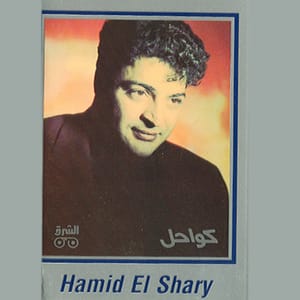Hamid Al Shaeri Ouda (1988)
"Spectatorship in sports, theater and other entertainments is foolish. People should engage in sports directly, deriving the benefits of athletics for themselves, rather than standing by and watching others perform." This excerpt is drawn from the Green Book, a compilation of the political philosophy of the ex-Libyan dictator Muammar Gaddafi. Ironically Gaddafi once promoted his Green Book by advertising it on the jerseys of the West German ice hockey club ESC Iserlohn—an absurd deal worth US$900,000, intended to rescue the financially struggling club. It was one of many attempts to propagate the Green Book outside Libya as a so-called “Third International Theory” or as a third alternative to Western capitalism and Marxism-Leninism. Despite extensive advertising efforts, Gaddafi's book received comparatively little attention on the international stage. In Libya, however, it was almost impossible to avoid the Green Book. Children spent two hours a week studying it as part of their curriculum. Extracts were broadcast every day on television and radio. Its slogans were also found on billboards and painted on buildings. As one result of this indoctrination, there was a growingly critical stance towards cultural imports. This reached such an extreme that, among other things, Western musical instruments were publicly burned. Hamid Al Shaeri, now regarded as a pioneer of synthesizer pop in the Arab world, found the situation unbearable. He decided to move to the comparatively liberal Egypt in the early 1980s to continue integrating Western influences and sounds into his music. A highlight from his extensive catalog is the almost bossa-nova-like "Ouda".

Start the conversation
Become a paid member of The Rest to gain access to the comments section.